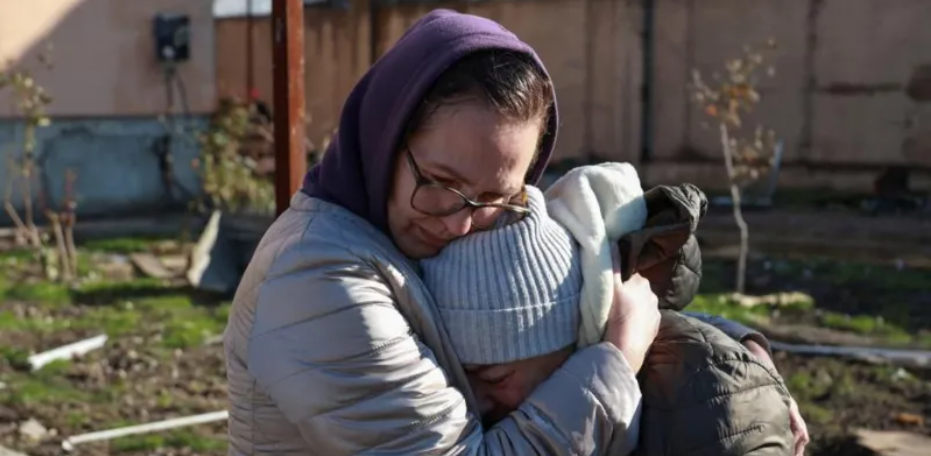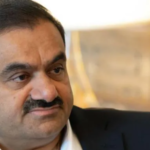Russia and US battle for advantage in Ukraine war ahead of Trump’s return
In recent days, the Biden administration and Russia have taken notable steps to shape the outcome of the war in Ukraine, just two months before Donald Trump’s anticipated return to the White House.
Moscow appears to be capitalizing on its position, while Biden seems to be abandoning longstanding red lines, potentially paving the way for Trump to fulfill his promise of ending the war within 24 hours.
Ukraine has already utilized Biden’s approval to deploy long-range ATACMS missiles deep into Russian territory. As Kyiv struggles to defend its eastern regions, Biden has also committed to sending anti-personnel landmines.
This shift in U.S. policy seems to have been driven by the deployment of thousands of North Korean troops to the front lines, an action Washington considers a “massive escalation.”
Meanwhile, Russian President Vladimir Putin has further heightened tensions by relaxing the conditions for using nuclear weapons—a move Moscow claims effectively eliminates the possibility of defeat on the battlefield. One Russian commentator suggested Putin might perceive the current situation as a transitional moment, giving him a sense of advantage in Ukraine.
Earlier this week, Russia launched its largest aerial assault on Ukraine in nearly three months. Amid fears of another strike on Wednesday, several Western embassies temporarily closed their doors.
“It’s all connected,” says Mykhaylo Samus, head of the New Geopolitics Research Network in Ukraine. He argues Russia has been stockpiling hundreds of Iskander and Kinzhal missiles for weeks to enable it to carry out strikes and thus send a psychological message ahead of the transfer of power in Washington DC.
Ukraine’s capital, Kyiv, may have been spared on Wednesday, but the message got through.
“Everything is about preparing for a strong position for talks with Trump, to understand Russia is not going to make compromise and everything depends on [Ukraine’s President Volodymyr] Zelensky.”
“There’s clearly an effort ahead of Trump to maximise their standings,” agrees Jade McGlynn, from the war studies department at King’s College London. She is highly sceptical that a deal with Vladimir Putin is possible – and that ultimately his aim is to subjugate Russia’s southern neighbour.
Ukraine marked 1,000 days since Russia’s full-scale invasion on Tuesday with Russian forces waging relentless attacks in a bid to seize key hubs in the east of Ukraine.
The mood in Moscow appears to be that it is only a matter of time before Ukraine is in its hands, says Tatiana Stanovaya of the Carnegie Russia Eurasia Center.
From January, however, Putin will have to consider other factors, she says: “He will have to deal with the fact that Trump now is responsible for the situation. If Putin escalates, it can worsen the chances for a deal. He will have to be more flexible, more open to different options.”
Biden’s decision to allow Kyiv to begin firing ATACMS into Russian territory was clearly directed at helping Kyiv, but it was felt by the Trump entourage, too.
Although Trump has so far said nothing, his pick for National Security Adviser, Mike Waltz, spoke of “another step up the escalation ladder and nobody knows where this is going”.
He did not go as far as some on the Trump team. Donald Trump Jr complained Biden was trying to “get World War Three” going before his father could even return to the White House.
“There’s one president at a time,” said State Department spokesman Matthew Miller “When the next president takes office, he can make his own decisions.”
Some Republicans have backed Biden’s move, although Sen Lindsay Graham said he should have done it “to help Ukraine and he’s playing politics with it”.
Russia’s reaction may or may not be an empty threat.
Under its revised nuclear doctrine, Moscow will now be able to use nuclear weapons against non-nuclear countries that are backed by nuclear powers, and if it comes under “massive” air attack, too.
Alexander Ermakov from the Russian International Affairs Council says the change is not so much as an operational manual for using nuclear weapons, but “primarily it serves as a declaration to potential adversaries, outlining the scenarios in which such measures could be considered”.
Another message from Putin to the West, then.



